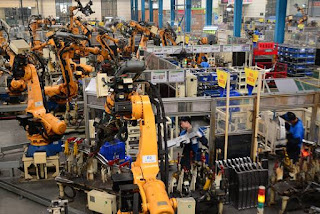The 'venturesome' economy

There was a time - not too long ago - when I used to be excited by venture talk. Spending hours on PowerPoint presentations or ever complicated Excel spreadsheets, I painted the future - and then 'pivoted'. I participated in the watercooler chat about valuations and name-dropped every VC I knew in town. The future - I believed like everyone else - had a valuation. Nowadays, though, I am scared. Through many failures and some successes, I have come to see what venture capital does to industries. While I spent my entire career looking for innovation opportunities, I have lately realised that disruptions can be literal and really destructive. Of course, my age explains my scepticism, but that also allows me to see things in context. Also, the reason I am scared is personal: I chose, early in my career, to be in education. That's what I have done for over twenty years now, not just working in it but also reading, thinking and talking about it. There was venture-talk in educatio...

